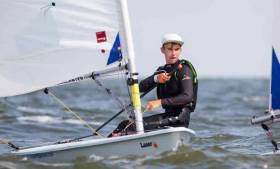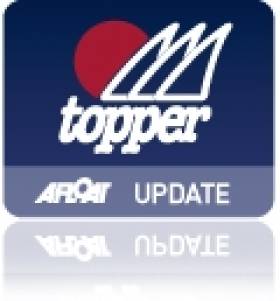Displaying items by tag: Conor Quinn
Irish Laser sailor Conor Quinn, from Rostrevor and a member of Carlingford Lough Yacht Club (CLYC) and Rush Sailing Club (RSC) is on his way to China this December as the as the sole Irish Laser Radial representative at the Under–19 Youth Sailing World Championships in China in December.
Part of the RYANI Performance Academy, Quinn also trains with the Irish Sailing (ISA) Youth Academy.
Further to Quinn’s impressive sailing efforts this summer, he also secured a place at Newcastle University to study Accounting & Finance, a course in which he embarks on in the coming weeks.
Receiving the prestigious nomination for China tops a successful summer for the young sailor, having also represented Ireland at the European Championships in Gdynia, Poland and the World Championships in Medemblik, Holland, at which he finished 31st and 32nd place respectively in a highly competitive field from over 50 countries.
“I hope to continue my good run of form into China and am hungry for further success on the international stage, Quinn told Afloat.ie
Royal Cork's D'Arcy Is Racing for Topper World Title in Pwllheli
#topperworlds – Adam D'Arcy from Royal Cork Yacht Club goes into the final day of the Topper World championships this morning in third overall, just a week after finishing fifth at the Topper British Championships at the same North Wales venue.
Going in to the final rounds. D'Arcy is four points off the overall lead and on the same points as second overall. The Munster youth has broken a British stranglehold on the top ten in the 138–boat fleet. Next best Irish in Pwllheli is Carlingford's Conor Quinn in 12th.
The major dinghy sailing event was delayed because of strong winds gusting up to 40mph in Gwynedd earlier in the week.
Ireland won the Topper worlds last year when Liam Glynn topped the fleet in France.
Full results here






























































